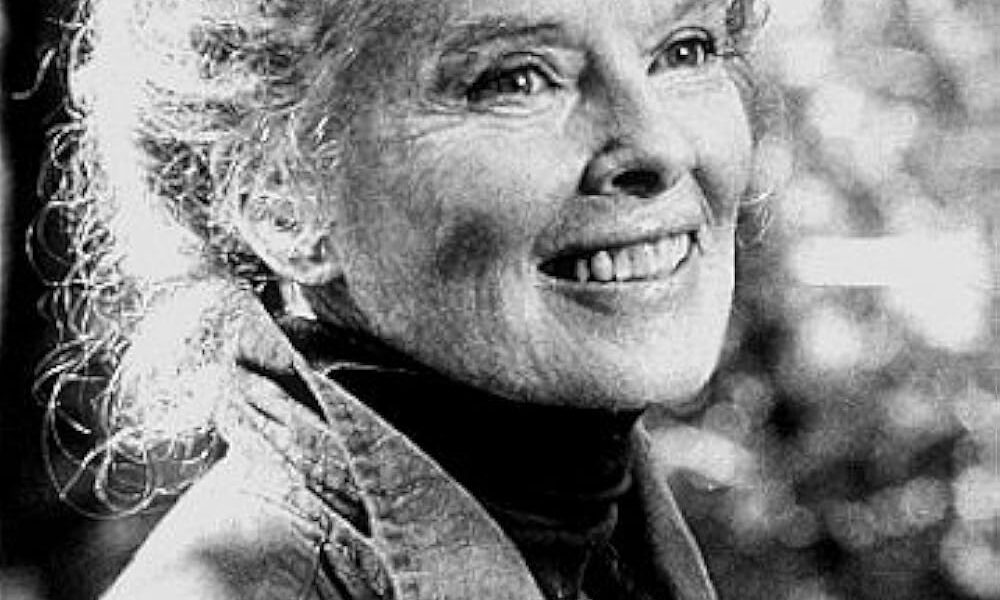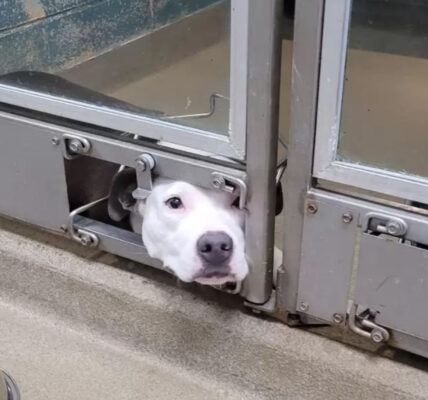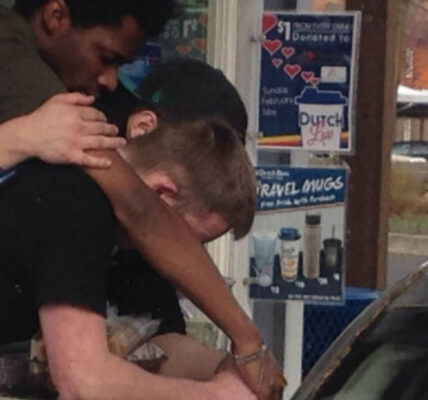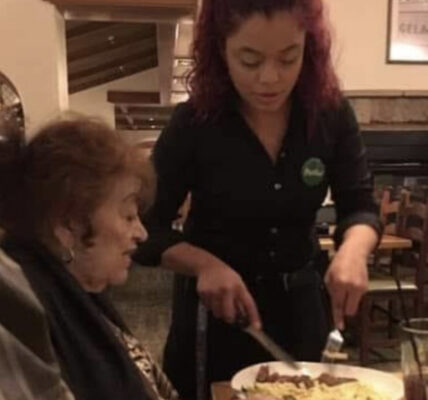
Katharine Hepburn once told a story about her childhood, a story that left an imprint on her heart forever.
She was a teenager, standing in line with her father to buy tickets to the circus. For her, it was supposed to be a night of laughter, clowns, and animals. But what she witnessed that evening would stay with her longer than any performance ever could.
Ahead of them in line stood a family—ten people in all. A mother, a father, and eight children, none older than twelve. Their clothes were worn and plain, but spotless, carefully cared for by hands that clearly knew sacrifice. The children stood in pairs, holding hands, excitement radiating from their faces. You could tell by the way they whispered to each other that they had never been to a circus before. This wasn’t just another evening out—it was a dream, a milestone, perhaps the memory of a lifetime in the making.
The parents stood proudly at the front, their posture full of dignity despite the strain written in their eyes. The mother clung to her husband’s hand, her gaze full of trust, as if to say, “You’ve done it. You’ve given this to us.” The father smiled, soaking in the joy of his children, feeling—just for a moment—that he was enough.
When the ticket lady asked how many tickets he needed, his voice rang with pride:
“Eight children’s tickets, and two adult tickets.”
The clerk named the price.
In an instant, everything shifted. The wife’s hand slipped from her husband’s. Her head dropped. His lips trembled as he asked, almost in disbelief, “How much did you say?”
The price was repeated. He didn’t have enough.
What followed was one of the most painful moments a parent could face: the realization that he might have to turn to his eight eager children and tell them their dream was over before it began.
Katharine, watching with wide eyes, felt the ache in her chest. But before the scene could break, her father quietly reached into his pocket. He pulled out a $20 bill—the exact money they had saved for their own tickets. With a flick of his hand, he dropped it to the ground. Then he bent down, picked it up, and tapped the father on the shoulder.

“Excuse me, sir,” he said gently. “I believe this fell out of your pocket.”
The man froze. He looked into Katharine’s father’s eyes and understood. This wasn’t pity. It wasn’t charity. It was dignity wrapped in kindness.
His hands shook as he gripped her father’s hand, the bill caught between them. A tear slid down his cheek as he whispered, “Thank you, sir. This really means so much to me and my family.”
Katharine and her father left the line. They didn’t go to the circus that night. The $20 that might have bought them laughter instead bought something far more lasting: a lesson in love.
“We didn’t see the circus,” she later said, “but that night we felt a joy inside us greater than any show.”
It was then she learned: the giver is greater than the receiver.
If you want to be truly great, greater even than life itself, you must learn to give. To love not because of what you’ll get in return, but because of what you can give away.
Love is sacrifice. Love is generosity. Love is the act of blessing others, again and again, because there is always joy in giving.
And Katharine Hepburn never forgot it.




